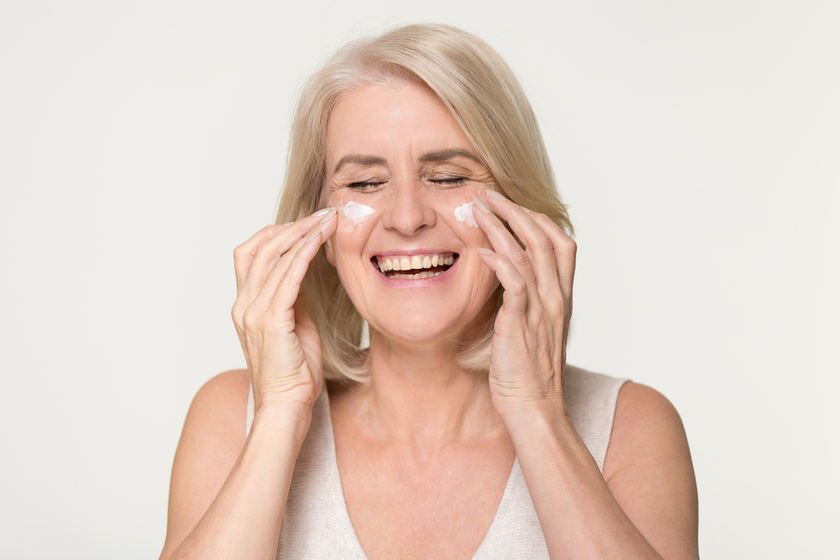Our skin naturally becomes drier and less resilient over time. Many people experience a reduction in the skin’s natural oils and their ability to stay moisturized as they age. Despite these changes associated with aging dry skin, adopting certain effective habits can significantly help maintain the health and vibrancy of your skin.
Stay Hydrated Inside and Out
One of the simplest yet most effective ways to combat dry skin is by staying hydrated. Drinking sufficient water throughout the day helps maintain the skin’s moisture balance and elasticity. Aim for at least 8 glasses of water daily. Additionally, using a humidifier in your home can add moisture to the air, especially during the drier, colder months, helping your skin stay hydrated.
Choose Gentle, Moisture-Rich Skincare Products
As you age, your skin becomes more sensitive and prone to dryness. Switching to gentle, hydrating skincare products can make a significant difference. Look for cleansers, moisturizers, and body washes that are specifically formulated for dry or sensitive skin and are free from harsh chemicals and fragrances. Ingredients like hyaluronic acid, glycerin, and ceramides can help lock in moisture and strengthen the skin’s barrier.
Nutrition That Nourishes Skin
Your diet plays a pivotal role in the health of your skin. Foods like salmon, flaxseeds, and walnuts, can help to fortify the skin’s oil barrier, which is essential in keeping skin hydrated. Vitamins C and E are antioxidants that protect the skin from damage and help in collagen production, crucial for skin elasticity and hydration. Incorporating these nutrients into your diet can aid in maintaining supple, hydrated skin.
Protect Your Skin from the Elements
Protecting your skin from harsh environmental elements is crucial. Excessive exposure to the sun, wind, and cold can strip the skin of its natural oils, leading to dryness. Always use a broad-spectrum sunscreen with an SPF of 30 or higher, and seek shade when the UV rays are at their strongest. In winter, cover your skin with gloves and scarves to shield it from the cold and wind.
Regular Skin Exfoliation and Moisturization
Regular exfoliation can help remove dead skin cells that accumulate on the surface of the skin, which often contributes to dryness and flakiness. However, it’s important to exfoliate gently to avoid damaging the skin. Using a soft scrub or a chemical exfoliant with alpha-hydroxy acids once a week is generally sufficient for older skin. Follow up with a rich moisturizer to hydrate and soothe the skin immediately after exfoliating.
Prioritize Sleep and Stress Management
Sleep is a time for the body to repair and regenerate, and this includes the skin. Ensuring you get around 7-8 hours of quality sleep each night can help improve your skin’s health and appearance. Similarly, high-stress levels can lead to dry skin and exacerbate skin problems. Engaging in regular activities that reduce stress, like yoga, meditation, or even leisurely walks, can positively impact your skin’s moisture levels and overall health.
Embracing Skin Care as a Senior
Taking care of your skin as you age doesn’t have to be a daunting task. By integrating these simple habits into your daily routine, you can significantly enhance the hydration and health of your skin. Remember, each small step can lead to big improvements in combating the effects of aging dry skin. Start today, and your skin will thank you tomorrow with a healthier, more radiant complexion.
At our retirement community, we support these healthy habits with a range of wellness activities and personalized care options that cater to maintaining vibrant, hydrated skin. We invite you to join us to discover how our commitment to your well-being can enhance your daily life.
Feel free to reach out to us to learn more about how we can assist you.







